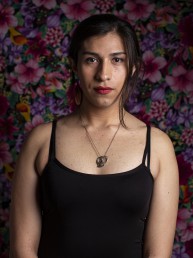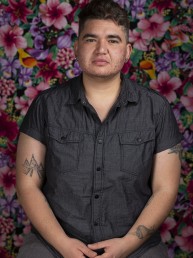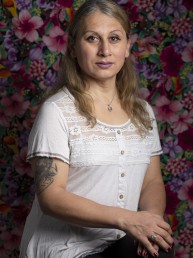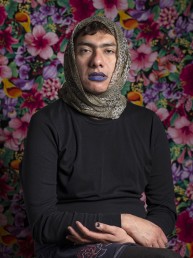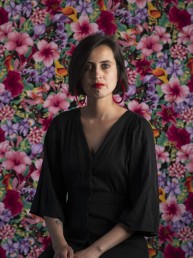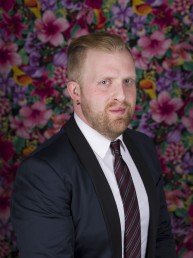About the project
Introduction
Public work focusing on sexual and gender minorities often falls into familiar tropes: narratives of suffering, marginalization, forced sex work, and poverty. Often, these projects speak about their subjects with a certain sense of authority that effaces their agency and experiences, flattening their lives and stories into a single, unnuanced narrative that fails to view each subject as both a member of a collective and an individual in their own right.
These participants are rarely invited to speak for themselves, and their words, images, and histories are often reinterpreted for the public by so-called “experts.” This often results in a loss of nuance, as academics and artists—who are often financially and materially best situated to tell these stories—are rarely members of the communities they study. Despite their best intentions, they bring with them their own set of biases of preconceptions that inevitably influence the shape of the final product.
(de) Les Trans was born out of a desire to do a different kind of project, one that takes these authoritative gazes as its primary object of study. The very title of the project seeks to question and destabilize the authority of one particular way of understanding the trans community. Rather than simply titling the project “les Trans” (Trans people), the (de)—a particle which in Spanish connotes both the topic at hand and ownership—invites the viewer to understand the project as at once saying something about trans people in Santiago and as belonging in some way to the participants themselves.
Crucial to this endeavor is the active participation of trans people themselves, whose perspectives and experiences were centered in both the planning and execution of the final project. Rather than attempting to eliminate or compensate for individual preconceived notions—ultimately an impossible task—de (les) Trans seeks to bring these different perspectives to the forefront, highlighting the similarities and differences among them, and eschewing any notion of objective truth in favor of an intersectional and multifaceted look at a segment of Santiago’s trans community.
This project has been in development since late 2017, and made use of the following methodologies: Chilean photographer Karina Fuenzalida carried out documentary photography (at least 2 months per participant) of the daily lives of 5 trans people living in the Santiago region. US sociocultural anthropologist Dr. Baird Campbell engaged in participant observation and semi-structured interviews with each participant during 2017 and 2018, with follow-up in 2021. Additionally, five trans people from the Santiago region responded—in whichever format they desired—to the prompt “show me who you are.” The contributions of these participants, Fernando Bravo, Catalina Vidal, Marcia Molina, Luka Suban, and Rayén Díaz, demonstrate the breadth and diversity of the trans experience in Santiago, representing diverse genders, sexualities, and socioeconomic conditions, as well as myriad artistic, textual, and multimedia forms of expression. Through this multidisciplinary approach, we ultimately hope to destabilize the authority and ability of any one gaze to make truth claims about Trans experience writ large.
In closing, we invite you to explore this portal and make it your own. By mixing, sorting, and juxtaposing the content yourself, we hope you can begin to understand the richness and variety of Trans experiences in Santiago, as well as how both similarities and contradictions between these narratives are crucial for destabilizing the idea that being Trans in Santiago means any one particular thing. As you draw conclusions about Santiago’s trans community, we invite you also to think critically about the multiple, sometimes contradictory, ways in which the trans community is framed, constituted, and limited by the practices and perspectives of documentary photography, ethnographic writing, and autobiographical expression.
Team
Catalina Torres
Risk prevention technician in the Subsecretary of Transportation
Fernando Bravo
Independent worker
Luka Suban
Teacher and activist
Marcia Molina
Sketch artist and painter
Rayén Díaz
Private French teacher
Karina Fuenzalida
Photographer and cultural manager
Baird Campbell, PhD
Anthropologist and professor




